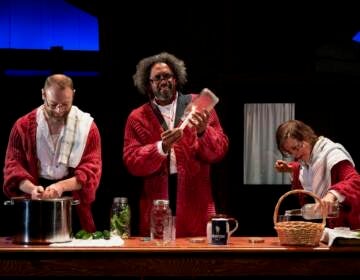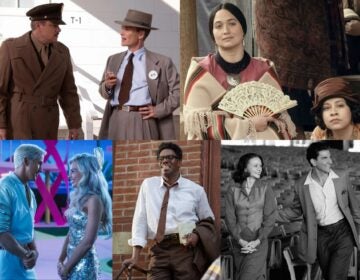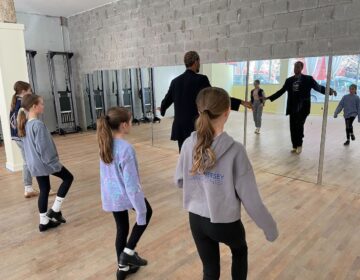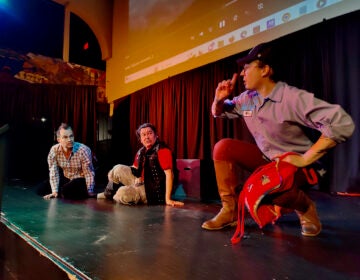Dance company returns to the stage for first time since 2020 with performance about hope
Koresh Dance Company returns for the first time since 2020, with a new performance of TikVAH.
Listen 6:03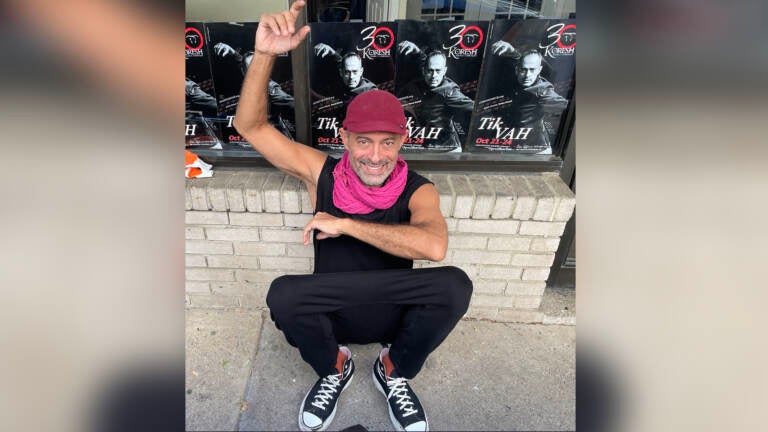
Ronen Koresh, Artistic Director of Koresh Dance Company in Philadelphia.
This weekend, the Koresh Dance Company, based in Philadelphia, returns to the Suzanne Roberts Theatre for the first time since the pandemic began.
The performance of TikVAH is a celebration of the company’s 30th year. The group is known for its highly technical and emotionally charged work.
Founder and artistic director Ronen Koresh began dancing as a child in Yehud, Israel where his family, Yemenite Jews, enjoyed traditional dances from Yemen.
Morning Edition host Jennifer Lynn spoke with him about TikVAH and his recent efforts to keep his company on the move.
—
TikVAH is the Koresh Dance Company’s return to the stage in the 30th year, I guess 31st [because] you said 2020 didn’t count. Welcome back to the live stage in front of a live audience. Are you so excited?
I’m extremely excited and kind of nervous in a way. I mean, it’s like going on a date after you haven’t gone on a date for 10 years, or the first time. It’s really bizarre. Two years is a very long time for artists that were doing it, you know, week after week being on stage.
Well, this new work, TikVAH, means “hope” in Hebrew. Tell me about that word, how it relates to this piece, and to you, because you have choreographed this piece.
When I came up with the idea of hope, tikvah, it wasn’t really related so much to the pandemic. It was about six months before the pandemic, and to me, the hope was I was going to celebrate 30 years. So that was the idea. And then the pandemic hit. And then suddenly the idea of hope took a whole different meaning. You know, when I started working with the dancers, all I wanted to do is give them hope and that word kept coming up. And I think what we created was not meant to be performed. It was personal. It was about how we were feeling truly, honestly, without thinking about audiences.
Will it appear like something that is an organic, internal experience for the dancer and they’re not really even projecting to the audience? Is that what you’re saying? It’s that personal?
Yes. So this is how we all felt when the pandemic hit because we came from a very successful tour. We were in Florida. We were performing with a full orchestra and then we were flying back to Philadelphia. And the next day, everything shut down. This particular work occupies and encompasses the emotions of what we felt for the first few months. It was petrifying. The confusion, the helplessness, the loneliness, the desperation. There really is barely any eye contact between the dancers.
Say more about this.
Because we were with masks when we did it. All you had to look at was the eyes and the bodies.
So even just communicating with each other in the creation of the piece must have been incredibly unusual.
Well, dancers are very physical. We touch each other. I mean, we spent so many hours together, nine hours, eight hours a day together, and suddenly you’re not even allowed to touch each other.
So there’s no touching in this piece.
Oh yeah. There’s moments of the yearning of wanting to and this kind of like, we can’t. We’re not allowed to touch.
We see this ensemble eventually connect?
Yes. It takes you on this journey of such anxiety and beauty, and desire, and passion. There’s also anger. There’s also abuse to some degree, as we know about how many cases of abuse happened because of people being together for so long. There was a lot of babies. There was a lot of, you know, babies being born. There was a lot of things that happened. Some good, some bad. You feel it and you see it in the work. In the end, there is resolve. And that’s the beauty of it.
During the height of the pandemic, your company performed in film shorts, which are findable online, and sometimes the dances were in reaction to the pandemic, sometimes in reaction to the racial reckoning of our very own country. And one short film, short Zoom, called “The Elephant Is In the Room,” speaks to racism and injustice.
Well, it was. Really, an immediate response after the George Floyd, you got to remember, we’re all stuck at home watching TV and we were bombarded with all this imagery. When I saw the footage, I was shocked and I knew I had to do something. Look, I’m a dark Jew. I’m a black Jew in a way. So I grew up with a lot of racism in my country, from the Ashkenazi Jews towards the Sephardic Jews. You know, it’s exactly the same. We were treated horribly. We were put in ghettos, you know, the same way. So I am familiar with racism. And as a Jew in general, I’m very familiar with racism and we were slaughtered all through the years. You know, as a citizen, as a human being, you know, I had to respond immediately to what happened.
Well, your work is making statements, interpreting and reflecting the human condition. Thank you for your many years and thank you for this conversation.
Thank you so much. It was lovely. Thank you.
WHYY is your source for fact-based, in-depth journalism and information. As a nonprofit organization, we rely on financial support from readers like you. Please give today.




